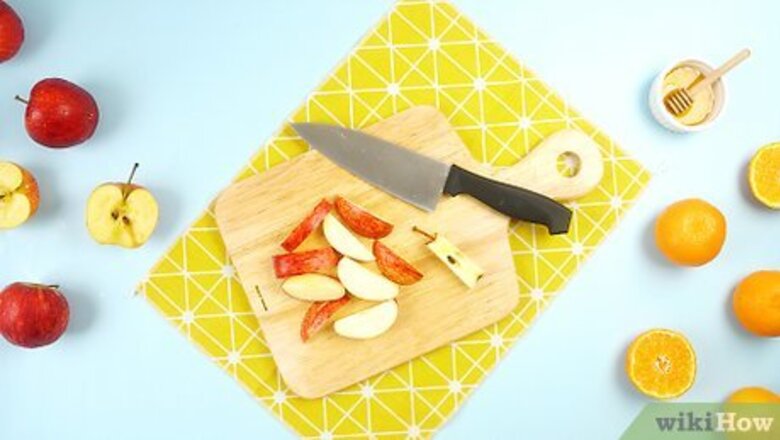
views
Using a Juicer

Cut the apple. Slice the apple into small sections. Make sure to cut the apple far enough from the core that you don't end up with seeds stuck in your apple slices. If you notice any seeds, remove them from the slices. You will not be using the core in your apple juice, so throw that away when you're done. Apple skin does contain some fiber, so you don't need to peel the apple if you don't want to. Your juice will taste just as good with the skin still on.
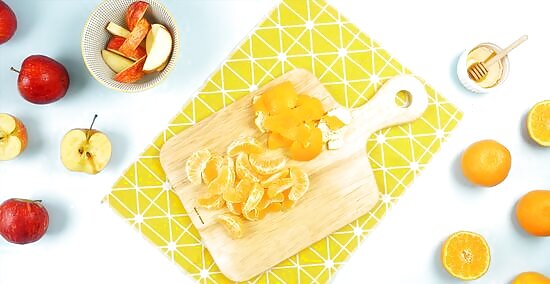
Separate the oranges into segments. Peel the skin from the oranges first. You can then use your fingers to pull the oranges apart into individual sections. Oranges are divided into sections naturally, so it's usually not necessary to use a knife when cutting oranges.
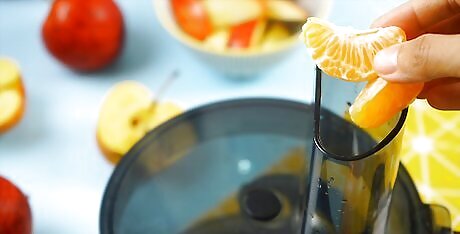
Place the produce through the juicer and collect the juice. How you do this precisely depends on your juicer. Usually, you will put a cup or pitcher down where the juice comes out. Then, you will feed the fruit into the machine and collect the juice as you go. The order does not matter. You can put either the apples or oranges first. Once you've collected the apple and orange juice, use a spoon to mix the two juices together.
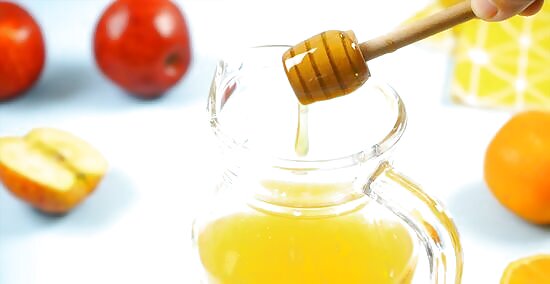
Add honey, if desired. If the juice is not sweet enough for you, add two teaspoons of honey. However, remember honey contains sugar. If you're watching your sugar intake, be careful about adding extra honey. If you dislike foods that are especially sweet, try adding one teaspoon of honey and then tasting the juice. If you want it slightly sweeter, add another teaspoon.
Making Juice with a Juicer
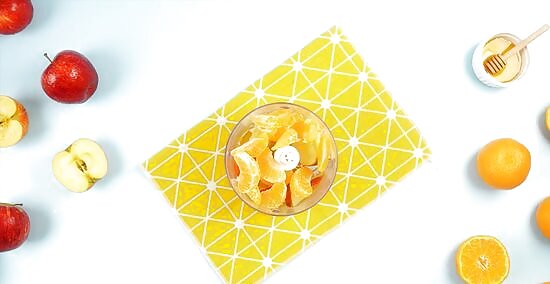
Cut the apples and oranges. Cut the apples into segments. Remove any seeds from the segments and then dispose of the cores. Peel the oranges and then separate them into sections. If you're working with a weaker blender, cut your fruit into smaller pieces. You do not need to peel the apples if you don't want to do so.
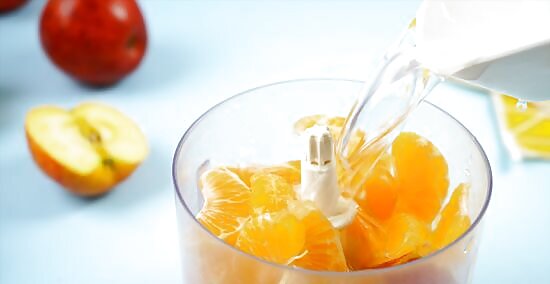
Add water to the blender. If you're working with bigger fruit, add around 1/2 a cup of water. Bigger pieces of fruit will require around 3/4 a cup of water. As you probably want your juice cold, use colder water. You can use cold tap water or water stored in your fridge.
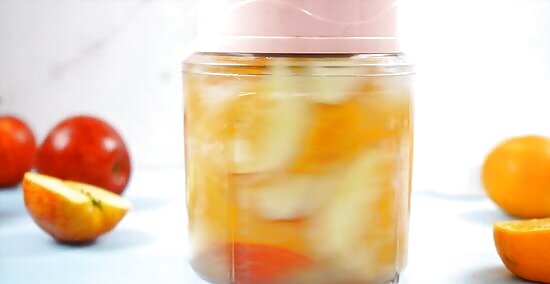
Blend until smooth. Turn your blender to its highest setting. If you have a "liquify" setting, use this. Keep blending your juice until the mixture is smooth and liquid-like. How long this will take depends on the strength of your blenders. Stronger blenders will take a shorter period of time. You're trying to create a puree texture rather than juice. Even a strong blender will not produce pure juice. Remember, you will be straining your mixture, so don't worry if there are still bits of pulp in your mix.
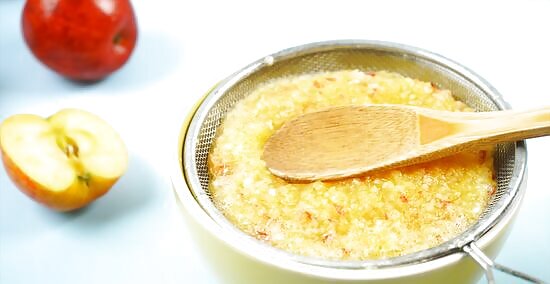
Strain the juice. Place a mesh strainer over a bowl big enough to hold all your juice. Pour your mixture into the strainer. Take a spatula. Gently press down on the mixture to squeeze out all the juice, while leaving the pulp in the strainer. When you're done, throw away the pulp.
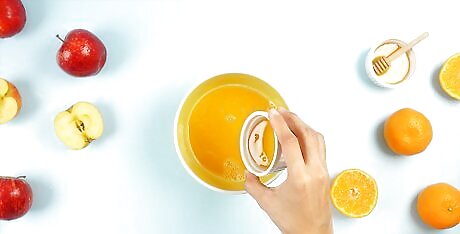
Add honey, if desired. If your juice is not as sweet as you want, add a few teaspoons of honey. However, remember honey contains a lot of sugar. If you're watching your sugar intake, skip the honey or only add a small amount.
Taking Precautions
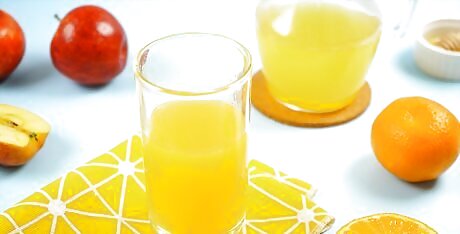
Avoid making juice a staple of your diet. While juice can be a great treat, it does not contain the same vitamins and nutrients as whole fruit. A lot of fiber gets removed when straining out the pulp from your fruits and you end up with more sugar than anything. While juice can be a great treat once in awhile, do not rely on it as a source of fruits in your diet. You should aim to eat whole fruit each day.
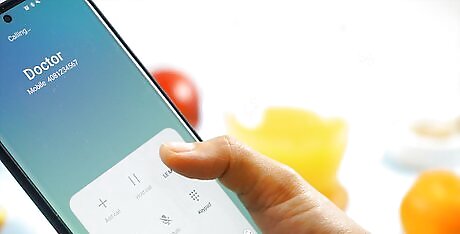
Talk to your doctor about juice if you have diabetes. If you have diabetes, you need to be careful about your sugar intake. Fiber from fruit can help with diabetes, but much of this fiber is lost in the juicing process. However, juice does contain some vitamins that can be beneficial, so talk to your doctor about how much juice you should be drinking. Make sure you ask your doctor how much juice per week is safe for you. As with anyone, juice should be more of an occasional treat than a staple of your diet.
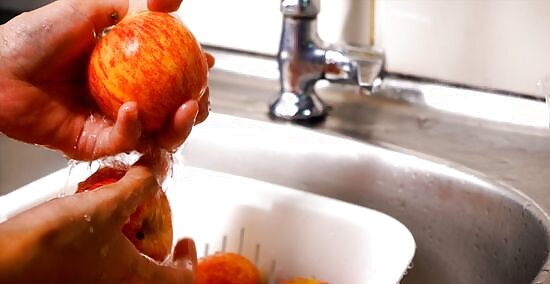
Wash your fruit before juicing it. This is especially important if you're not peeling your apples before adding them to your mix. Before washing your fruit, wash your own hands for 20 seconds using clean running water and soap. Hold your fruit under the faucet. Allow water to flow over it, and turn the fruit as necessary to wash the full surface. Gently rub out any dirt or debris you see on the fruit.












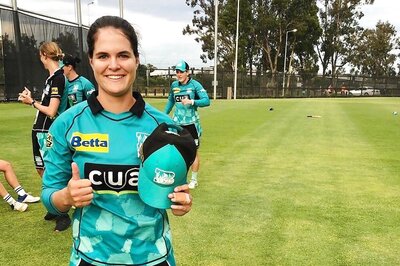







Comments
0 comment